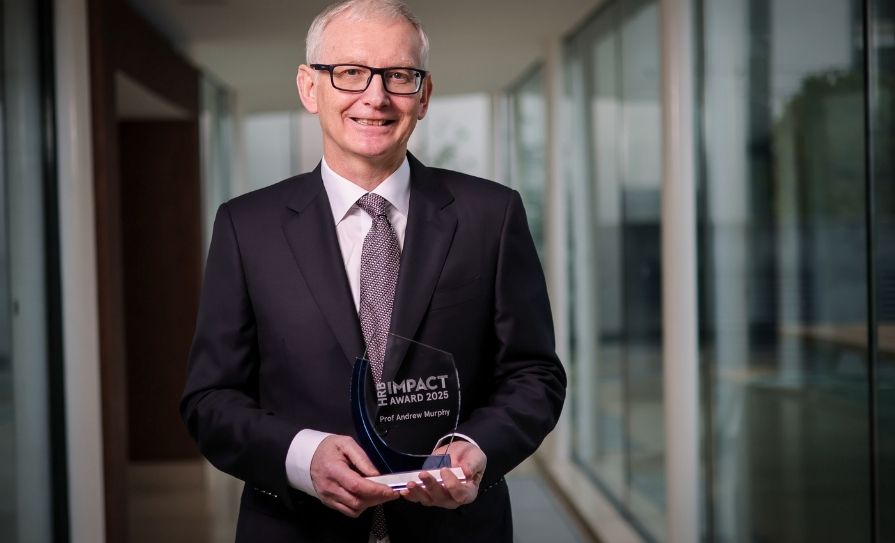David Lynch examines a new document that reviews evidence in relation to drug trends and health responses applicable to the night-time economy
Drug-checking enables health professionals to engage with hard-to-reach populations, according to a recent report from the HSE National Social Inclusion Office. The Report of the Emerging Drug Trends and Drug Checking Working Group concluded that there was “no tailored service for young people who use drugs in nightlife settings as in other countries”. One of its key recommendations was for a pilot drug-checking service for music festivals.
“Health and social responses in nightlife settings and drug-checking provision provide an opportunity for professionals to engage with populations of young people that don’t currently present to traditional service structures, including those who may have never received previous healthcare interventions for their substance use,” according to the report.
The Irish drug landscape has “been changing for some time”, the report stated, referencing new user groups from a range of social demographics.
Drug-checking and monitoring has the “potential to reduce drug-related harm” by identifying “when extra risky substances are in circulation”, the HSE National Clinical Lead-Addiction Services Dr Eamon Keenan said.
Real time alerts
Speaking last month at the report launch, Dr Keenan added that the “Dutch examples have shown the value of real time alerts in preventing drug-related deaths when dangerous substances emerge on the market”.
The report recommended a ‘back of house’ limited pilot drug-checking project at music festivals, in which drug samples can be anonymously dropped into an amnesty bin and then be tested by medical experts. For the moment, it does not recommend a more large scale ‘front of house’ system in which people can openly hand over drugs to be tested, with the report citing some possible legal difficulties.
It found that there were barriers to piloting an onsite ‘front of house’ service at this time in Ireland, with more work needed to be done with the Department of Justice.
“The working group reviewed a ‘back of house’ approach with consideration for placing an amnesty bin within a drug service at a festival, which could inform attendees of the contents of drugs through communication structures onsite,” according to the report.
“While not directly engaging with people who use drugs, a ‘back of house’ approach can provide valuable insight on drug contents to inform drug alert mechanisms.”
The report stated that if the ‘back of house’ pilot system proved positive, “this may then support the development of a full ‘front of house’ approach for festival settings.”
Dutch examples have shown
the value of real time alerts in
preventing drug-related deaths
when dangerous substances
emerge on the market
Emergency medicine at festivals
It also made some specific recommendations for emergency medicine at music festivals and similar events.
It stated that “emergency critical medical care requires further expert discussion to consider the management and preparedness for critical illness, toxidromes, and hyperpyrexia at events, as well as improved data collection”.
In this regard, the report recommends the formation of a national committee, chaired by HSE’s emergency management division, “to advise on emergency critical medical care at festivals and related events is recommended.” This committee would develop standardised reporting templates for festival medical care providers and drug services at events to capture necessary data for health services.
The report reviewed drug use and health responses among people who use drugs in nightlife spaces. “For some time, the topic of substance use in the context of nightlife settings has received little attention in research, policy and practice,” said Dr Keenan last month.
We are generally well informed about people who attend addiction services and we do have general population surveys.
“However, this may not be an accurate representation of the current drug situation in Ireland as there are some groups who may never present to our services and are at risk of harm. These groups require new and tailored responses.”
The report recognised that an emerging stimulant and poly-drug culture among new user groups is currently a major issue of concern across Europe and here in Ireland.
“The proliferation of stimulant drugs in Ireland is occurring during a period when increased purity and potency of substances is a cause of concern for health services,” said Dr Keenan.
“We have identified a need to improve research and develop new services in response to these trends. The current situation is particularly relevant as nightlife resumes throughout Europe. Nightlife outreach and drug analysis are recognised ways in which we can engage with young, hard to reach populations.”
Information deficit
For its part, the HSE said it recognised that there was limited information on the composition of substances consumed in Ireland, with identification mainly being utilised for law enforcement purposes that does not inform health communications, interventions, and warnings.
Three new national working groups are recommended to plan research, training, emergency responses, and scientific oversight with an aim to improve emerging trend and nightlife responses.
*The report is available at www.hse.ie/eng/services/publications/report-of-the-emerging-drug-trends-and-drug-checking-working-group-2021.pdf













Leave a Reply
You must be logged in to post a comment.